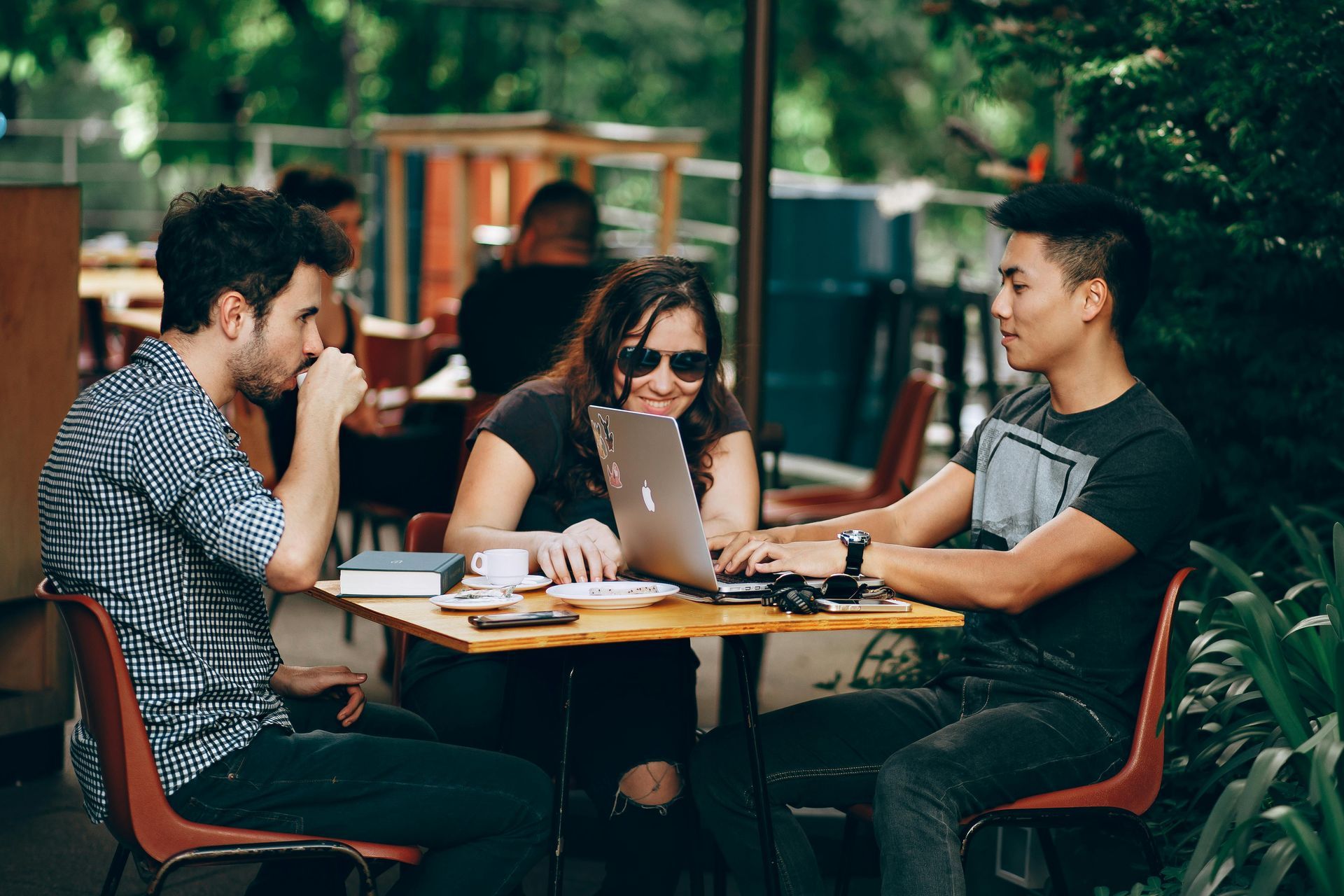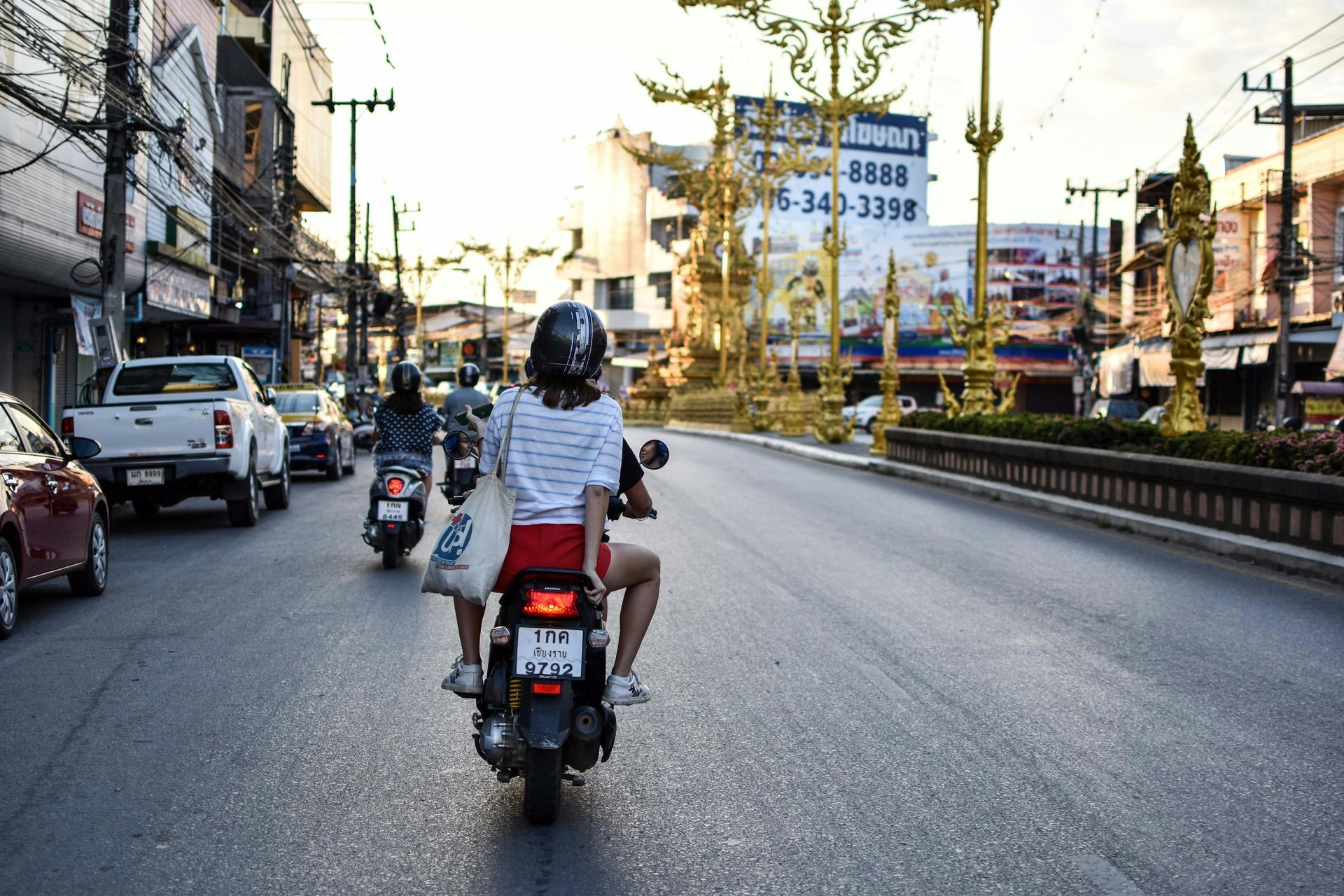Cultural Etiquette in Thailand: A Nomad Hopper’s Guide
Navigate Thai Culture with Ease: Essential Etiquette Tips for Respectful Travel

Thailand, the "Land of Smiles," is a country renowned for its breathtaking landscapes, delicious cuisine, and warm hospitality. But beyond its glittering temples and bustling markets lies a deep cultural heritage rooted in respect and harmony. Whether you’re wandering the streets of Bangkok, relaxing on the beaches of Phuket, or exploring Chiang Mai’s lush mountains, understanding Thai etiquette can enrich your travel experience and help you connect with locals. Here’s a guide to navigating Thailand’s cultural customs with ease.
The Wai: A Gesture of Respect
The wai is a traditional Thai greeting and a way to show respect. It involves pressing your palms together in a prayer-like position and slightly bowing your head. While locals often exchange the wai, foreigners are not always expected to initiate it, but returning the gesture is appreciated. Note the context:
- Formal greetings or showing respect: Place your hands higher, close to your face, and bow more deeply.
- Casual encounters: A lower wai is sufficient.
- Avoid wai-ing to children or service staff; a polite nod and smile suffice.
Dress Modestly at Temples
Thailand’s temples (wats) are sacred spaces, and dressing modestly is essential when visiting. Ensure your shoulders and knees are covered, and avoid tight or revealing clothing. Scarves or sarongs can be handy for covering up if needed. Remember to remove your shoes before entering temple buildings and avoid pointing your feet toward Buddha statues.
Mind Your Feet and Head
In Thai culture, the head is considered the most sacred part of the body, while feet are the lowest and dirtiest. Avoid touching anyone’s head, even as a friendly gesture, and don’t point your feet at people or sacred objects. When sitting, try to tuck your feet beneath you or to the side rather than pointing them outward.
Smiles Speak Louder Than Words
Thais are known for their smiles, which convey a wide range of emotions. A smile can defuse tension, express gratitude, or simply show friendliness. Maintaining a cheerful and respectful demeanor will help you navigate social interactions smoothly.
Avoid Public Displays of Affection
While Thailand is a warm and welcoming country, public displays of affection (PDA) are generally frowned upon. Holding hands is acceptable, but kissing or hugging in public can be seen as disrespectful.
Respect the Monarchy
The Thai monarchy is deeply revered, and any disrespect toward the royal family is a serious offense. This includes making critical comments or gestures. You’ll notice portraits of the King displayed in homes, businesses, and public spaces—always treat these with respect.
Dining Etiquette
Thai cuisine is a highlight of any visit, but dining comes with its own set of customs:
- Shared meals: Dishes are often served family-style, and it’s polite to take small portions at a time.
- Utensils: Forks are used to push food onto a spoon, which is the primary eating utensil. Chopsticks are mainly used for noodle dishes.
- Paying the bill: The person who extends the invitation usually pays, but splitting the bill is increasingly common among friends.
Tipping Culture
Tipping is not mandatory in Thailand, but it’s appreciated in the hospitality industry. Leaving loose change or rounding up the bill in restaurants, taxis, and for hotel staff is a thoughtful gesture.
Stay Calm and Polite
Raising your voice or showing anger in public is considered rude and a loss of face. If you encounter a problem, remain calm and try to address the issue politely. Patience and kindness often lead to better outcomes.
Learn a Few Thai Phrases
Speaking a little Thai can go a long way in showing respect for the local culture. Simple phrases like:
- Sawasdee (kha/khrap): Hello (kha for women, khrap for men)
- Khop khun (kha/khrap): Thank you
- Mai pen rai: It’s okay/no problem
Will likely earn you smiles and appreciation.
By embracing Thailand’s cultural etiquette, you’ll not only show respect for the local way of life but also deepen your own travel experience. Every smile, wai, and act of courtesy helps bridge the gap between cultures, leaving both you and the people you meet with lasting positive impressions. Safe travels, Nomad Hoppers!


